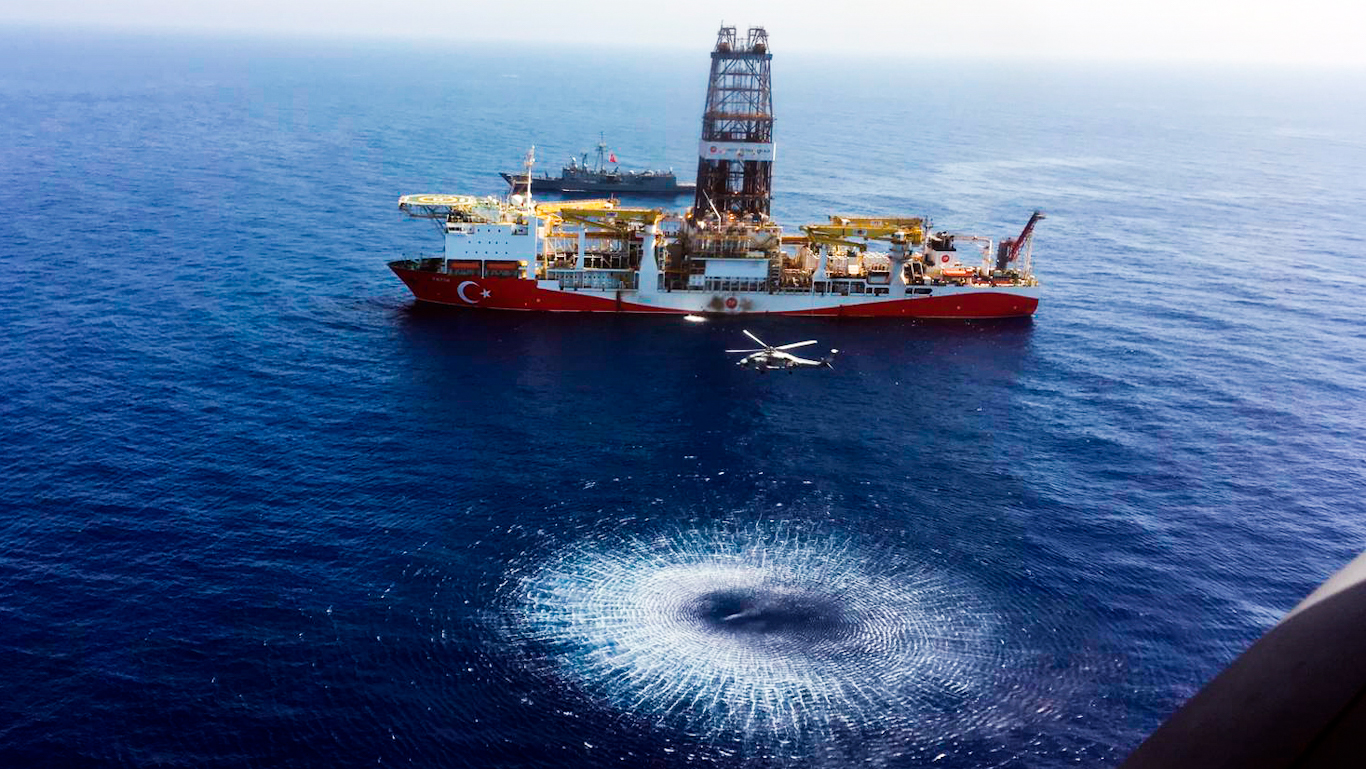Cheap Mediterranean Natural Gas Could Spell the End for the NATO Alliance
It’s a strange and unprecedented spectacle when countries like Israel, Greece, Egypt, Libya, Turkey, and others lay claims over the Mediterranean, while NATO scrambles to stave off an outright war, among its own members.
The North Atlantic Treaty Organization (NATO) is an alliance in name alone. Recent events notwithstanding, the brewing conflict over territorial waters in the Eastern Mediterranean indicates that the military union between mostly Western countries is faltering.
The current Turkish-Greek tension is only one facet of a much larger conflict involving, aside from the two Mediterranean countries, Israel, Egypt, Cyprus, France, Libya and other Mediterranean and European countries. Notably absent from the list are the United States and Russia; the latter, in particular, stands to gain or lose much economic leverage, depending on the outcome of the conflict.
Conflicts of this nature tend to have historic roots – Turkey and Greece fought a brief but consequential war in 1974. Of relevance to the current conflagration is an agreement signed by Israeli Prime Minister, Benjamin Netanyahu and his Greek and Cypriot counterparts, Kyriakos Mitsotakis and Nicos Anastasiades, respectively, on January 2. The agreement envisages the establishment of the EastMed pipeline which, once finalized, is projected to flood Europe with Israeli natural gas, pumped mostly from the Leviathan Basin.
Several European countries are keen on being part of, and profiting from, the project. But Europe’s gain is not just economic but also geostrategic. Cheap Israeli gas will lessen Europe’s reliance on Russia’s natural gas which arrives in Europe through two pipelines, Nord Stream and Gazprom, the latter extending through Turkey.
Gazprom alone supplies Europe with an estimated 40% of its natural gas needs, thus giving Russia significant economic and political leverage. Some European countries, especially France, have labored to liberate themselves from what they see as a Russian economic chokehold on their economies.
…click on the above link to read the rest of the article…
